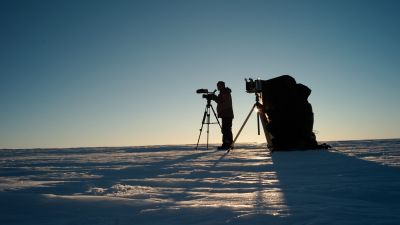Prinoths Departing for the Field
A time-lapse showing both Prinoths setting off along the long traverse, transporting teams and supplies across the Antarctic plateau.

Through these small videos, we hope to give you a taste of what it is like to work and live at the Princess Elisabeth Station. We tried to cover a broad range of topics and uploaded parts of our archives to do so. We hope you'll like it.
A time-lapse showing both Prinoths setting off along the long traverse, transporting teams and supplies across the Antarctic plateau.
Team members lie flat and work together to safely pull a secured colleague out of the crevasse.
Demonstrating the rope techniques used to safely ascend and exit a crevasse.
A striking look at the scale and beauty of a crevasse from the inside.
Demonstrating how a seemingly solid snow surface can collapse and reveal a crevasse below.
A last inspection of the fully assembled station to ensure it remains stable and secure in strong winds.
Putting the weather station together and verifying each component before final installation.
Carrying station components up the hill to the installation site under challenging conditions.
Drilling into the rock to secure the station with steel guide wires for long-term stability.
Final system checks confirm that all sensors and data transmission are working as intended.